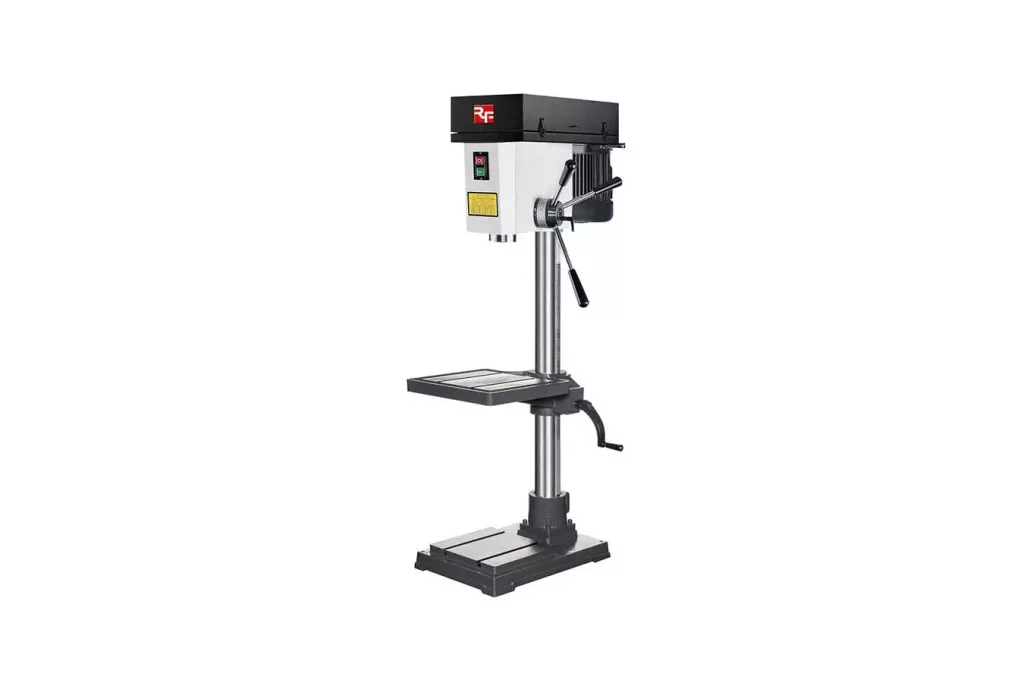When you’re shaping and cutting materials in your workshop, choosing the right tools can significantly affect precision and efficiency. A drill press offers reliable drilling capabilities with remarkable accuracy, perfect for repetitive tasks requiring consistent depth. On the other hand, a mill drill machine provides versatility by combining drilling with milling operations to handle complex shapes and surfaces.
Your decision hinges on project requirements, whether intricate designs or simple perforations guide your choice towards either specialized equipment like a high-quality industrial cutting tool or a more versatile machinery solution.
Drill Press Advantages for Precision Cuts
You need precision cuts, and a drill press could be your answer. It drills holes, but its true worth shines when exactness matters most. Unlike mills with countless tooling options that may cost an arm or leg (think collets to power feeds), the humble drill press requires just bits plus maybe a vise.
No endless list of extras here! With space tight in your garage, think: will you really use all those bells and whistles? Or do neatly drilled parts top your wish list?
If they do, investing wisely means choosing tools tailored to real work demands – like industrial cutting where specifics can’t waver. Remember this: simplicity often wins for focused tasks without the clutter of what-ifs and might-needs.
Mill Drill Machines: Versatility Meets Power
Mill drill machines blend the roles of milling and drilling, aimed at those who value space. Unlike hefty traditional mills tipping scales past 2,000 pounds, these compact powerhouses slip into small spots with ease. Just what you need when weight matters in your workshop setup!
The mill’s table shifts up, down, and side to side for detailed tasks like slot-making—no heavy gear is needed to move it about. Benchtop models cut the bulk yet stand firm against shakes—a boon for precision jobs without needing its bigger cousin’s floor area or muscle power during installation. For simple hole-drilling, though, ponder a dedicated press; they’re built for spot-on results fast with less guesswork thanks to set depths plus adjustable angles.
Look over your needs. Rare milling favors the press, but what if varied machining calls out? A versatile mill could be just right in your tool corner!
Matching Tooling Needs to Machine Capabilities
When you pick between a drill press and a milling machine, think about your tasks. A drill press excels in pushing into materials from above but can’t take side forces like a mill can. Mills do more: they cut with precision at any angle, not just down or up; this makes them fit for tricky jobs where exact placement counts.
So, ask yourself what you’ll be drilling or cutting. If it’s only straight holes, a simple drill press might suit you fine – cheaper, too! But if shaping parts on every side is what’s needed most days, then the versatility of a CNC mill will shine through despite its higher cost.
Remember that TAICNC offers advanced CNC mills suited for all intricate metalwork. You don’t need to fret over choices, though—I’m here to guide you right to the best tooling matched with your machine’s ability.
Deciding between a drill press and a mill drill machine depends on your specific needs. If precision hole placement is paramount, opt for the stability of a drill press. For more versatile machining that includes cutting and shaping, consider investing in a robust mill drill machine to expand your capabilities.
Assess your projects thoroughly before making this critical choice. Either way, Suncoast Precision Tools offers high-quality options to enhance your craftsmanship with efficiency.

